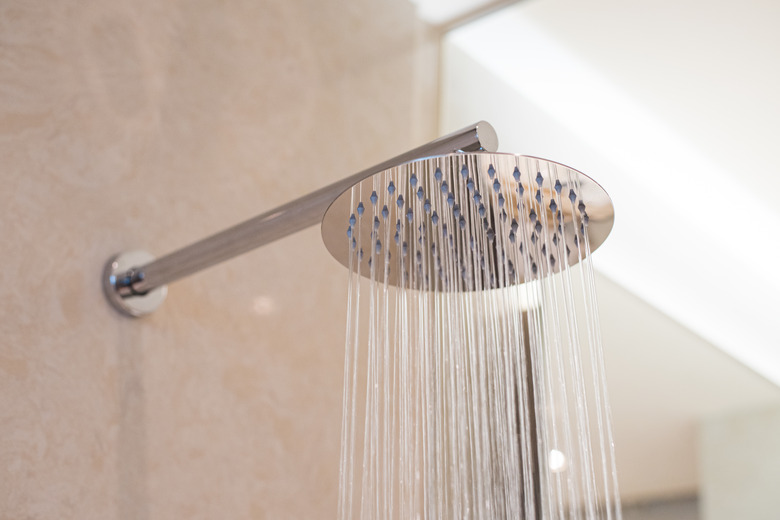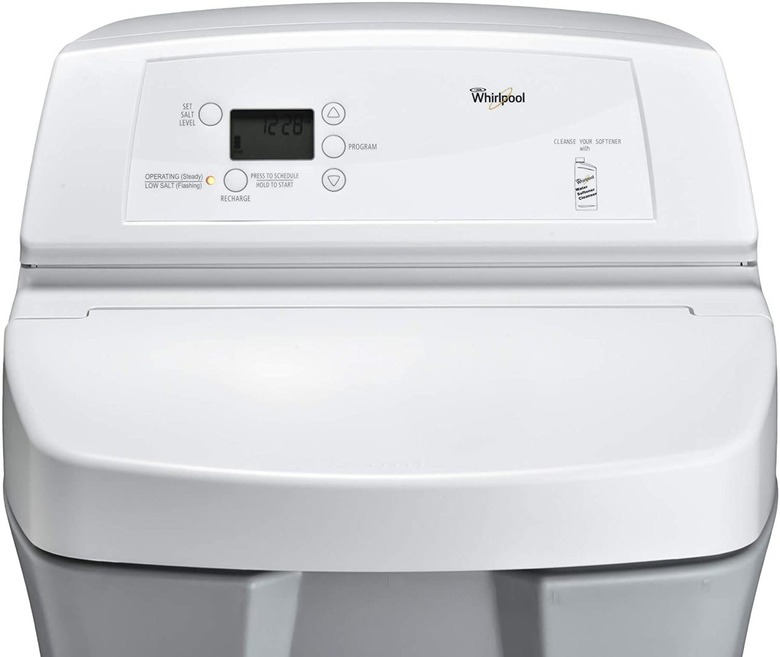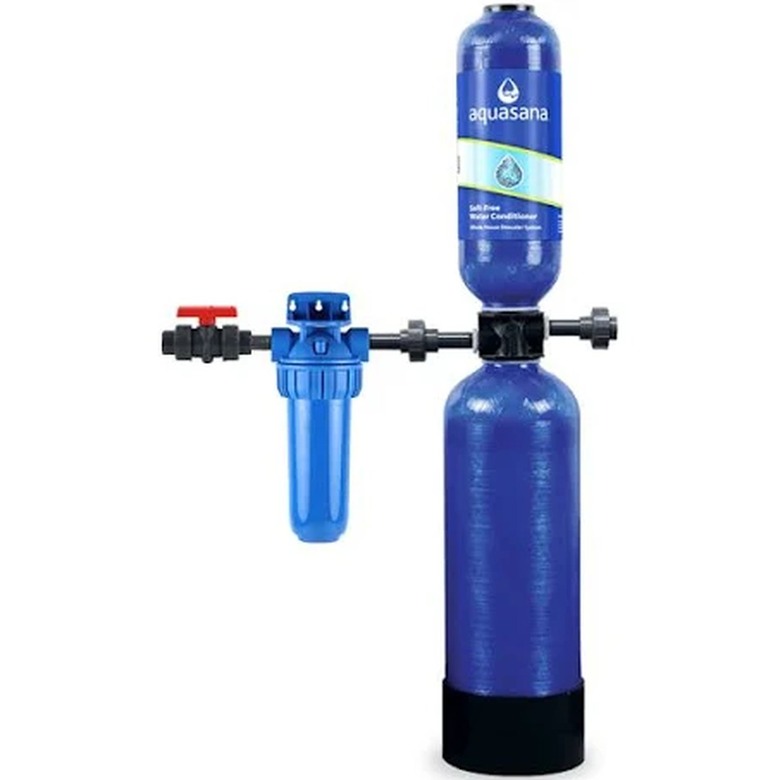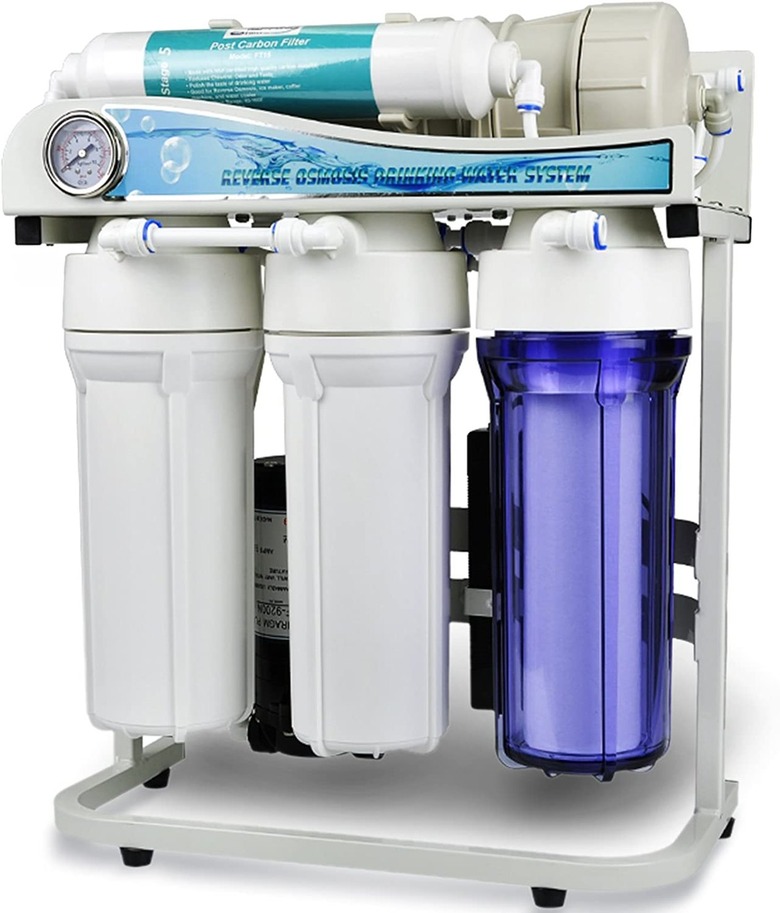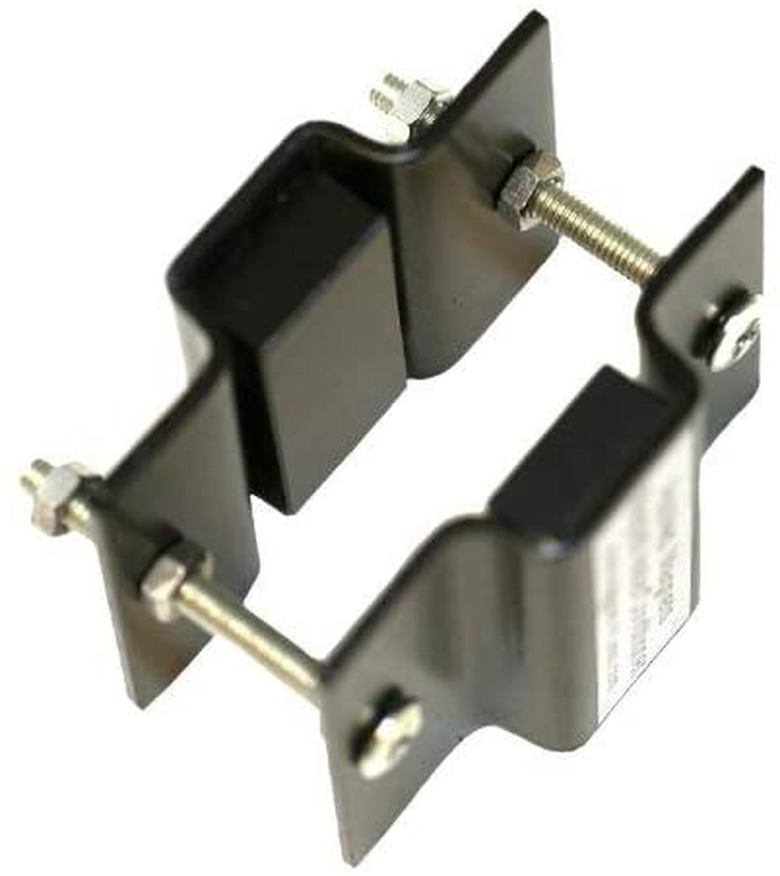Water Softener Installation Costs And Considerations
We may receive a commission on purchases made from links.
When certain problems start creeping up around the house, they may be telling you that it's time to consider a water softener installation. For example, if your water-using appliances and plumbing pipes aren't lasting as long as they should, your hard water may be to blame. You may start to notice stains on dishes, sinks, and bathtubs, and your glassware may become increasingly brittle. Hard water can also make your skin feel dry and itchy after a shower and may fade your clothing in the washing machine.
A water softener can solve all of these problems, but it comes with widely varying costs. On average, a water softener costs between $500 and $6,000 installed. This is a massive price range, but the cost varies a great deal depending on what type of water softener you choose and how complicated the installation gets.
Ion Exchange Water Softeners
Ion Exchange Water Softeners
Ion exchangers cost between $300 and $1,000, and installation runs between $500 and $2,000. This type of water softener is the one most people think of when they picture a water softener and is the best type of unit for truly making your water softer.
Ion exchange units are filled with resin beads that have been flushed with salt water. These beads attract the negatively charged mineral in hard water. When they do, they hold onto the magnesium and calcium in the water, essentially trading them for salt ions. Eventually, however, the resin beads use up all their salt and wind up full of magnesium and calcium.
When this occurs, the water softener will flush itself by running water through a salt tank. This salty water is then washed over the resin beads, removing the calcium and magnesium buildup while replenishing the salt supply. This process uses up some of the salt in the unit, so you will need to periodically add salt to the water softener.
Salt-Free Water Softeners
Salt-Free Water Softeners
Technically, salt-free water softeners are water conditioners rather than true softeners. Filled with potassium chloride rather than salt, salt-free units change the chemical composition of the minerals in your water. Once altered, these minerals can no longer cling to your plumbing and appliances. It doesn't actually remove these minerals like an ion exchange system does, but it renders them relatively harmless to your plumbing.
Salt-free water softeners cost $500 to $3,000 to purchase and another $800 to $4,000 to install. These units are a little more expensive than ion exchange water softener systems, but they can condition your water without adding any salt to it. Although the amount of salt added by an ion exchange system is minimal, you may want to avoid it if you're working on improving your diet and lowering your blood pressure through reduced salt intake.
Reverse Osmosis Water Softeners
Reverse Osmosis Water Softeners
Reverse osmosis systems cost between $100 and $1,800, and professional installation runs about $1,000 to $2,800. Like salt-free systems, reverse osmosis systems aren't really water softeners at all. Because they remove many different types of contaminants, reverse osmosis units are considered water filters.
When water enters a reverse osmosis system, the unit forces it through a series of filters and permeable membranes to remove any impurities. Because the holes in the membrane are so small, they filter out fluoride, chlorine, salt, and pesticides. They also filter out the minerals that make your water hard, trapping them inside the filter.
Magnetic Water Softeners
Magnetic Water Softeners
Magnetic water softeners are the cheapest of the bunch, and many argue that they should be since they may not work. The theory behind a magnetic water softener is that placing a strong magnet on your pipes will pull the mineral ions out of your water. No one seems very clear on how exactly this would work, and independent studies suggest that it doesn't.
If you're willing to test the theory in your home, expect to pay between $60 and $400 for the softening system and $200 to $600 for installation. Installation for these units varies. Some are simply strong magnets that are clamped into place around the pipe and attached with a bracket or strap. More complicated systems use a powered electromagnet and involve wrapping electrical wires around the pipe and sending current through them.
When the installation is a matter of simply clamping the magnets to an existing pipe,
a DIY installation will suffice. Like other water softeners, however, electromagnetic systems are best installed by a professional plumber.
Water Softener Installation
Water Softener Installation
Typically, water softeners are installed where the water supply first enters the house. This lets the softener work its magic before the water goes anywhere else in your home, eliminating the risk of hard water scale buildup. Installation involves running an incoming water supply line to the softener and then running another line to the house. The unit will also need to be connected to a drain so it can flush itself and will require electricity to operate.
To reduce salt consumption, some homeowners elect to soften only their hot water. In this case, the water softener is plumbed only into the line that feeds the water heater. Your dishwasher, washing machine, and many other household appliances tend to use more hot water than cold, so they'll still be protected if you soften only your hot water. Most people shower with mostly hot water, so this plan still provides soft water's skin benefits.
Salt-free water systems require the same basic plumbing and electrical configurations but don't require a drain. This makes them much more adaptable if you wish to put your softener in a spot where it will only soften some of the water in your home. You may, for example, only feel the need for soft water in the laundry room or bathroom rather than the whole house. Keep in mind, however, that you need access to plumbing and electricity no matter where you wish to place your water softener. Unique installation challenges can drive up installation costs.
Ongoing Water Softener Costs
Ongoing Water Softener Costs
Buying and installing your water softener isn't where the costs end. If you install an ion exchanger, expect to spend about $5 to $10 per 40-pound bag of salt, and the cost increases to about $25 to $35 per bag for the potassium chloride used in salt-free water softeners. Most households use one to two bags of salt or potassium chloride per month.
Reverse osmosis systems, on the other hand, need annual filter changes, and the filters cost about $100. Some systems require more expensive filters, however, so make sure you ask about the filter prices for a particular unit before you commit to your water softener installation. They can cost up to $1,000, so choose carefully.
Other than these expenses, your water softener won't cost you much. The water bill could increase slightly when the unit flushes itself, but this is minimal and is typically offset by water bill savings. Households with a water softener tend to need slightly less water since soap lathers better and rinses away more cleanly. Units also require electricity to run but use only negligible amounts of power.
References
- HomeAdvisor: How Much Does A Water Softener Cost?
- Culligan Water: Salt-Free Water Softeners: Do They Work?
- Roto-Rooter: Do Magnetic Water Softeners Work?
- Fresh Water Systems: The Truth About Salt-Free Water Softeners
- Robert B. Hill Company: Reverse Osmosis vs. Water Softener: Which One Do I Need?
- The Home Depot: Types of Water Softeners
- HomeGuide: How Much Does It Cost To Install A Water Softener System?
